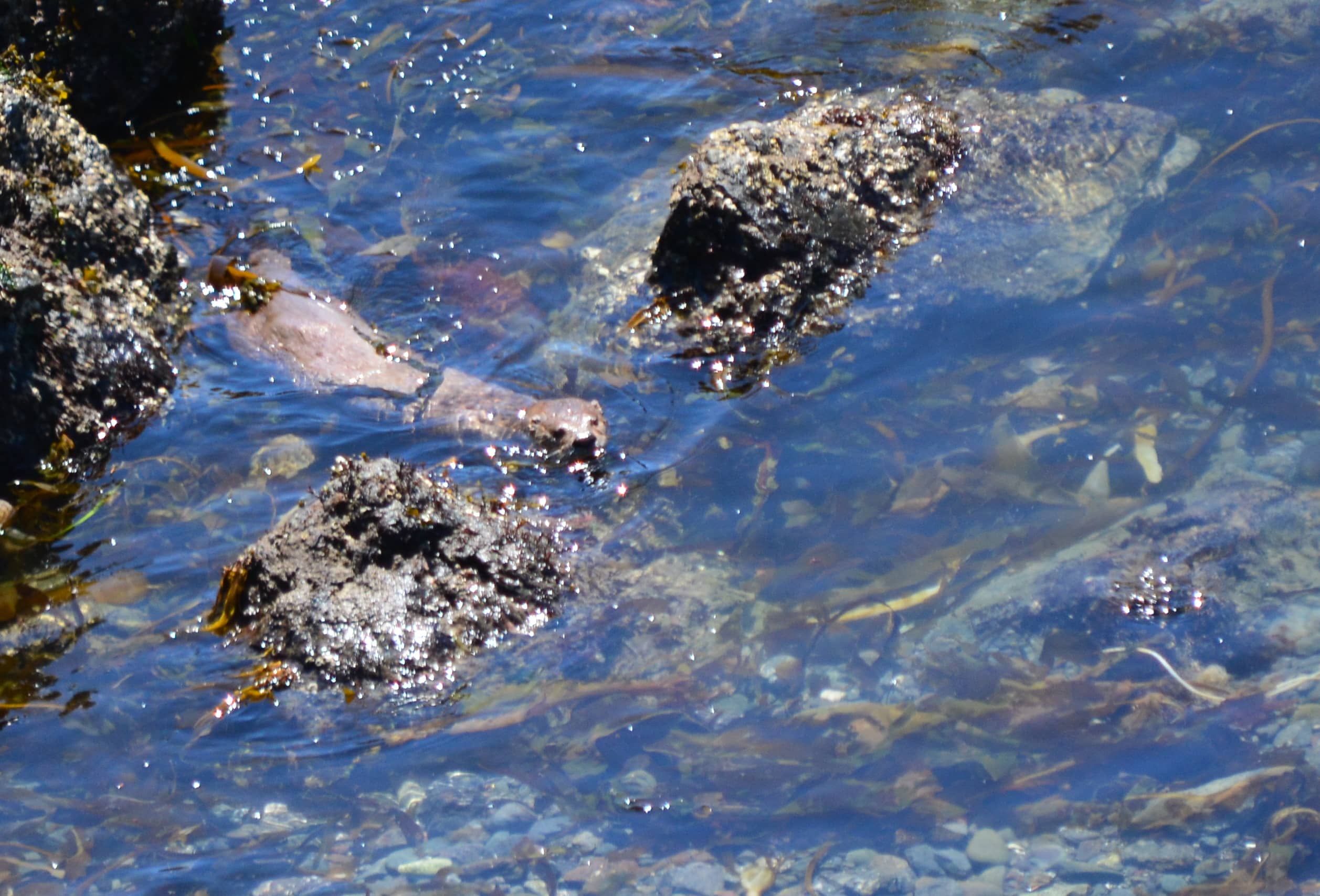Point Joe
A dramatic viewpoint on the 17-Mile Drive, known for its rugged coastline, historical maritime perils, and stunning Pacific vistas.

Highlights
Must-see attractions

Social
From TikTok & Reddit
Best Time
Golden hour light paints the coast
Point Joe
Best Time
Golden hour light paints the coast

Highlights
Must-see attractions
A dramatic viewpoint on the 17-Mile Drive, known for its rugged coastline, historical maritime perils, and stunning Pacific vistas.
"Stunning views of the Pacific crashing against rocks, steeped in maritime history."
🚗 Pay the 17-Mile Drive Fee
There's an entrance fee per vehicle for the 17-Mile Drive. Factor this into your budget! :moneybag:
📸 Capture the Drama
The waves and rocks create stunning photo ops. Bring your best camera! :camerawithflash:
Highlights
Discover the most iconic attractions and experiences

Dramatic Coastal Views
Along the 17-Mile Drive
Witness the raw power of the Pacific crashing against rugged, jagged rocks. A photographer's dream!

Historical Significance
Near the viewpoint
Learn about the mariners' treacherous past and the man named Joe who gave this point its name.

Wildlife Spotting
Offshore and tide pools
Keep an eye out for sea otters, harbor seals, and a variety of seabirds in their natural habitat.
Plans like a pro.
Thinks like you
Planning Your Visit
Navigating the 17-Mile Drive
Understanding Point Joe's History
Best Times
Insider Tips
from TikTok, Instagram & Reddit
Del Monte Forest Trailhead
🚗 Pay the 17-Mile Drive Fee
There's an entrance fee per vehicle for the 17-Mile Drive. Factor this into your budget! :moneybag:
📸 Capture the Drama
The waves and rocks create stunning photo ops. Bring your best camera! :camerawithflash:
🥾 Watch Your Step
The terrain can be uneven and rocky. Wear comfortable shoes for exploring safely. :athletic_shoe:
🧐 Read the Informational Signs
Signs offer fascinating historical and natural history insights. Don't miss them! :memo:
Tips
from all over the internet
🚗 Pay the 17-Mile Drive Fee
There's an entrance fee per vehicle for the 17-Mile Drive. Factor this into your budget! :moneybag:
📸 Capture the Drama
The waves and rocks create stunning photo ops. Bring your best camera! :camerawithflash:
🥾 Watch Your Step
The terrain can be uneven and rocky. Wear comfortable shoes for exploring safely. :athletic_shoe:
🧐 Read the Informational Signs
Signs offer fascinating historical and natural history insights. Don't miss them! :memo:
What Travellers Say
Reviews Summary
Visitors consistently praise Point Joe for its stunning, dramatic coastal scenery and the raw beauty of the Pacific Ocean meeting the rugged shoreline. The historical context, mentioning shipwrecks and the man named Joe, adds an intriguing layer to the visit. It's a highly recommended, picturesque stop on the 17-Mile Drive.
"Point Joe is a notable landmark located along the scenic 17-Mile Drive on the Monterey Peninsula in California. The 17-Mile Drive is renowned for its breathtaking coastal views, and Point Joe is one of its standout features, steeped in both natural beauty and historical intrigue.
Key Features and Significance:
1. Geographical Location:
- Point Joe is situated near the northern end of the 17-Mile Drive, between the famous Spanish Bay and China Rock.
- It provides stunning panoramic views of the Pacific Ocean, with waves crashing dramatically against the rocky shoreline.
2. Historical Background:
- In the early 1900s, Point Joe was home to a lone shack occupied by a man named Joe, after whom the point was eventually named. Joe sold trinkets and souvenirs to passing travelers, becoming a well-known local figure.
- Historically, the area was notorious among sailors for its dangerous rocky outcrops and frequent shipwrecks, as the rocks were often mistaken for the entrance to Monterey Bay.
3. Natural Beauty:
- The rugged coastline at Point Joe is characterized by its jagged rocks and tide pools, offering a habitat for a variety of marine life.
- The dramatic interaction between land and sea here provides opportunities for spectacular photography, especially during sunrise and sunset.
4. Wildlife Observation:
- Point Joe is a popular spot for observing seabirds, including gulls and pelicans, as well as marine mammals like sea otters and harbor seals.
- The offshore kelp forests also contribute to the biodiversity of the area, attracting divers and marine biologists.
5. Visitor Experience:
- As part of the 17-Mile Drive, Point Joe is accessible to visitors via a scenic loop road that features several other notable landmarks and viewpoints.
- Informational signs at Point Joe offer historical context and natural history insights, enhancing the visitor experience.
Cultural and Recreational Importance:
- Point Joe, along with the entire 17-Mile Drive, is a beloved destination for tourists, photographers, and nature enthusiasts. The area is maintained by the Pebble Beach Company, which ensures its preservation and accessibility.
- It serves as a reminder of the rich maritime history of the Monterey Peninsula and the enduring allure of California's rugged coastline.
Point Joe stands out as a place of both natural splendor and historical intrigue, making it a must-visit spot on the iconic 17-Mile"
GHOUSE MOHAMMAD
"One of the scenic spot on 17th mail drive. Early days many shipwrecks. It believed that in early 1900 man names Joe lived here"
Sukumar shah
"This place has history of early mariners! Worth a brief stop on the 17- mile drive"
Ridhima Arora
What People Like
What People Dislike
Frequently Asked Questions
🚇 🗺️ Getting There
Point Joe is located along the famous 17-Mile Drive on the Monterey Peninsula. You'll need to pay an entrance fee per vehicle to access the drive. The drive itself is well-marked, and Point Joe is a designated viewpoint along the route.
Yes, there are designated parking areas at Point Joe, allowing visitors to stop and take in the views. Parking can fill up during peak times, so arriving earlier in the day is recommended.
No, Point Joe is exclusively accessible via the 17-Mile Drive, which requires an entrance fee. It's not reachable by public transport or by walking from outside the drive.
While Point Joe itself is generally accessible, the 17-Mile Drive can experience temporary closures due to events or maintenance. It's always a good idea to check the official Pebble Beach Company website for any alerts before your visit. Some Reddit users have noted construction on nearby Highway 68, which could indirectly affect travel times to the area.
The 17-Mile Drive is a loop. Point Joe is located towards the northern end, between Spanish Bay and China Rock. Follow the signs for Point Joe as you make your way along the scenic route.
🎫 🎫 Tickets & Entry
Point Joe is part of the 17-Mile Drive, which has an entrance fee per vehicle. This fee grants you access to the entire scenic drive and all its viewpoints, including Point Joe.
The entrance fee for the 17-Mile Drive is subject to change but is typically around $11.25 per vehicle (as of recent information). It's best to check the official Pebble Beach Company website for the most current pricing.
Sometimes, visitors who dine at certain Pebble Beach restaurants or stay at their hotels may have their entrance fee waived or reimbursed. Check with the establishment when making reservations.
Tickets for the 17-Mile Drive are typically purchased at the entrance gates. There isn't usually an option to buy them online in advance, but this could change, so checking the official website is advised.
The 17-Mile Drive is generally open daily from sunrise to sunset. However, specific gate hours can vary, so it's recommended to confirm with the Pebble Beach Company.
📸 📸 Photography
Sunrise and sunset offer the most dramatic lighting, with golden hour casting a beautiful glow on the coastline. Midday can be harsh, but still offers clear views of the ocean and rocks.
A wide-angle lens is great for capturing the expansive coastal views. A telephoto lens can be useful for spotting wildlife like seals or otters. A polarizing filter can help reduce glare on the water.
The main viewpoint offers panoramic vistas. Exploring slightly off the main path (safely!) can reveal unique angles of the waves crashing against the rocks and tide pools.
Be extremely cautious. The rocks can be slippery, and rogue waves can unexpectedly reach higher up the shore. Always maintain a safe distance from the water's edge.
Drone usage is generally restricted within Pebble Beach properties, including the 17-Mile Drive. It's best to assume drones are not permitted to avoid any issues.
🎫 🌊 Nature & Wildlife
Point Joe is a great spot for observing marine mammals like sea otters and harbor seals. You'll also see various seabirds, including gulls and pelicans, along the coast and in the offshore kelp forests.
Yes, during low tide, tide pools can be found among the rocks. These pools often reveal small marine life like anemones and starfish. Be sure to check the tide charts before your visit.
Early morning and late afternoon are often the best times for wildlife viewing, as animals tend to be more active. However, sea otters and seals can often be spotted throughout the day.
Absolutely. The coastal environment attracts a variety of seabirds. Bring binoculars if you're an avid birdwatcher to get a closer look at species like pelicans, cormorants, and various gulls.
The kelp forests are vital marine ecosystems that provide habitat and food for a wide array of sea life, including fish, otters, and seals. They contribute significantly to the biodiversity of the area.
For Different Travelers
Tailored advice for your travel style
👨👩👧 Families with Kids
📸 Photographers
🚗 Day-Trippers
Deep Dives
In-depth insights and expert knowledge
The Maritime History of Point Joe
This dangerous past is a stark contrast to the serene beauty visitors experience today. The name 'Point Joe' itself comes from a man named Joe who lived in a shack here in the early 1900s, selling souvenirs to travelers. His presence added a human element to this dramatic stretch of coast, and his name has endured, a reminder of the diverse stories held within this landscape.
Understanding this history adds a layer of appreciation for the power of the ocean and the resilience of those who navigated these waters. It's a poignant reminder that even the most beautiful places can hold tales of peril and survival.
Photography Tips for Point Joe
When composing your shots, consider using a wide-angle lens to encompass the vastness of the ocean and the dramatic sweep of the coastline. Don't forget to look for interesting foreground elements, such as tide pools or uniquely shaped rocks, to add depth to your images. A polarizing filter can be invaluable for cutting down glare on the water's surface and enhancing the saturation of the blues and greens.
Safety is paramount when photographing near the water. The rocks can be slippery, and unexpected waves can surge higher than anticipated. Always maintain a safe distance from the water's edge, and be mindful of your footing. For wildlife photography, a telephoto lens will allow you to capture seals, otters, and seabirds without disturbing them. Remember to check tide charts; low tide can reveal fascinating tide pools teeming with small marine life, offering unique photographic opportunities.






Social
from TikTok, Instagram & Reddit